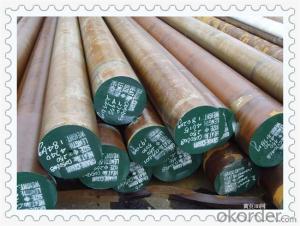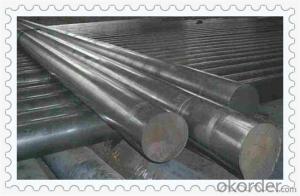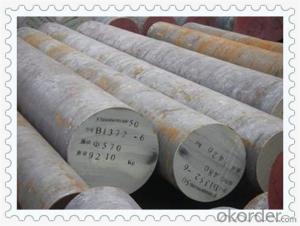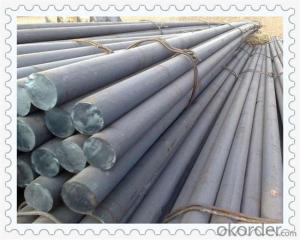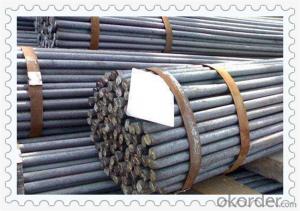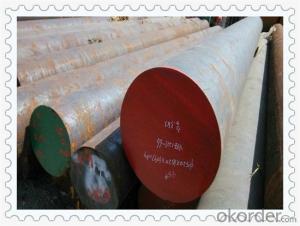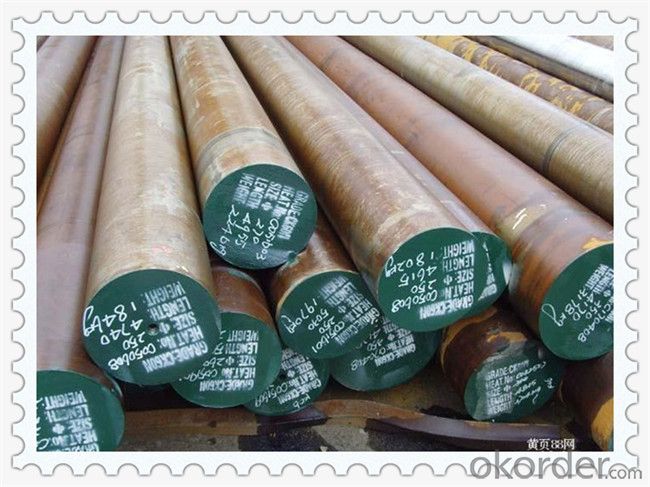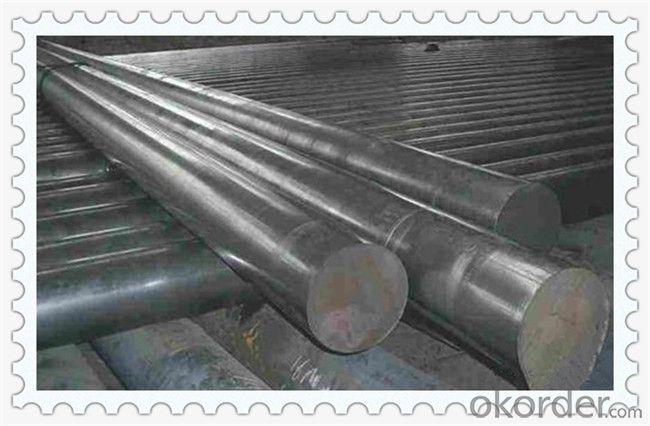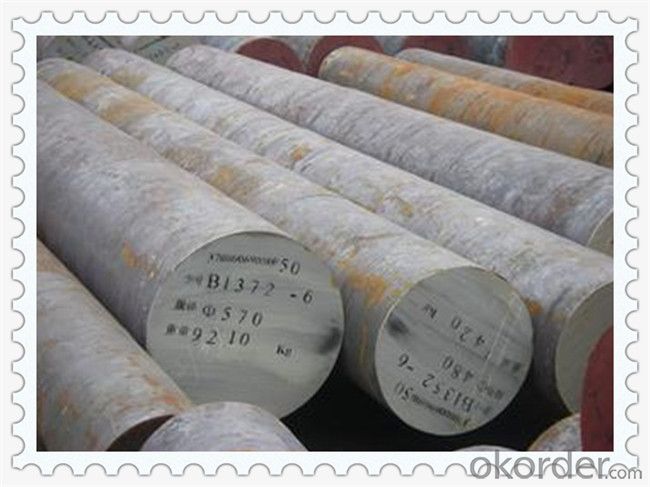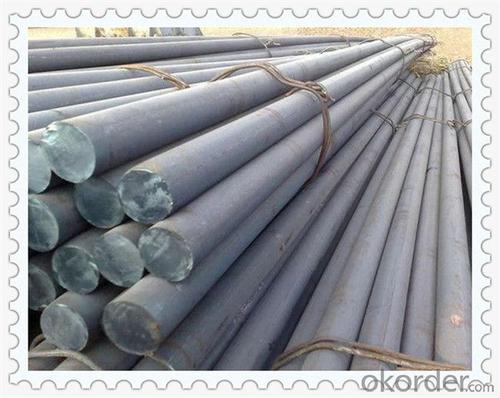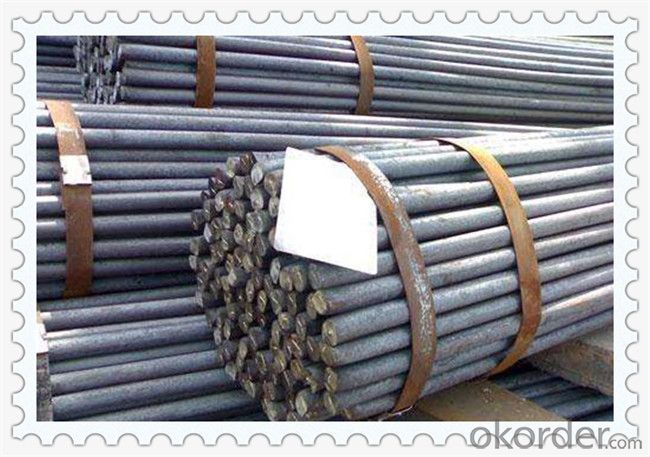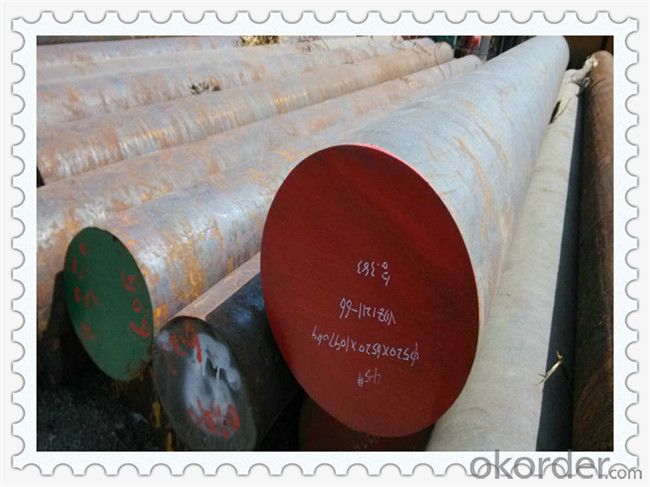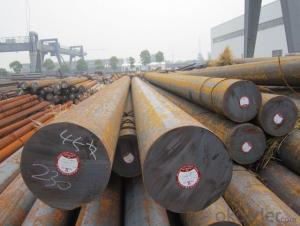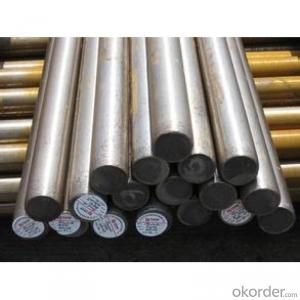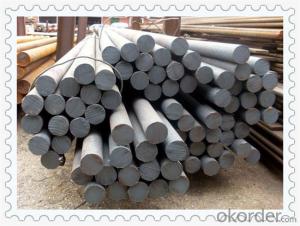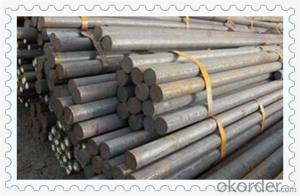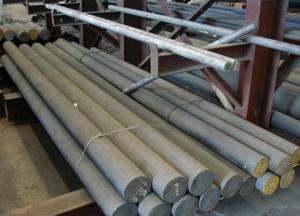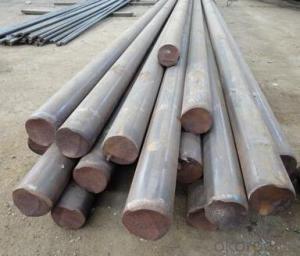1010 Carbon Steel Round Bar
- Loading Port:
- China main port
- Payment Terms:
- TT OR LC
- Min Order Qty:
- 5 m.t.
- Supply Capability:
- 100000 m.t./month
OKorder Service Pledge
OKorder Financial Service
You Might Also Like
Specification
1010 Carbon Steel Round Bar
| Commodity | 1010 Carbon Steel Bar | |||||
| Standard | GB | JIS | ASTM | DIN | ISO | |
| 10F | SPHD,SPHE | 1010 | 1.033 | C10 | ||
| Chemical Composition | C | Si | Mn | P | S | Cr |
| 0.08~0.13 | 0.15~0.35 | 0.30~060 | ≤0.040 | ≤0.050 | ~~ | |
| Mo | Cu | Ti | Al | V | Pb | |
| ~~ | ~~ | ~~ | ~~ | ~~ | ~~ | |
| Size/Diameter | 4-240mm | |||||
| Length | 2-12m, as customers' request | |||||
| Surface | Black/Bright, or as customers' request | |||||
| Manufacture | Hot Rolled/Cold Drawn/Forged | |||||
| Packing | Packed in bundles with standard export sea-worthy package | |||||
| Delivery Time | Within 20 working days, according to customers' quantities | |||||
| Quality | High Quality, TUV inspection is accepted if needed | |||||
| Place of Origin | Tianjin | |||||
| Brand Name | TG | |||||
| Productivity | 500 MT/Month | |||||
| MOQ | 5 MT | |||||
| Application | Foodstuff, Gas, metallurgy, biology, electron, chemical etc. | |||||
| Note | We also can supply you all kinds of carbon steel goods as your order | |||||
Other Feature:
we have professional and strictly producing control system as below:
Before Formed : Assurance of compliance
Review of Sub-vendor ; quality plan ;
Review of samples certification (MTC)
Chemical analysis
Tension &Mechanical tests
Finished : MT testing for Edge (If Exist)
Visual examination
Thickness measurment (Continous Ultrasonic)
Lenght dimension control.
Straightness
Visual & Dimention check of edge
Weight control
Marking
Material & NDT retest (if required)
Ready for delivery : Protection coating
Certificate of compliance
Packing check
Shiping mark and number check
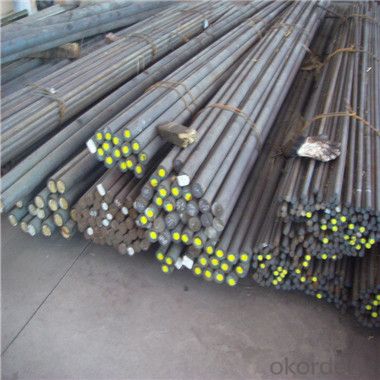
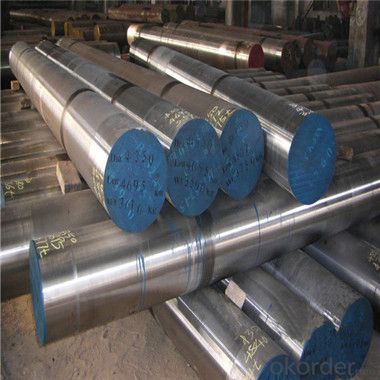
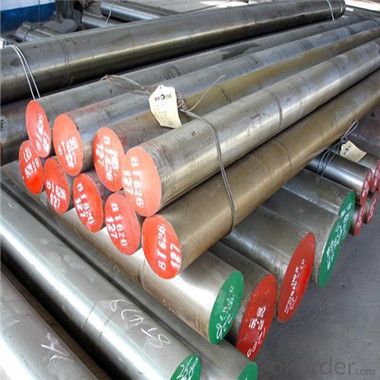
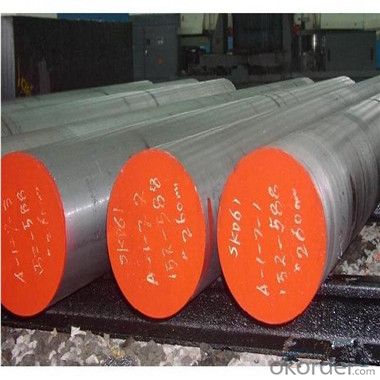
- Q: How do you determine the hardness of a steel round bar?
- To determine the hardness of a steel round bar, various methods can be used. One common method is the Rockwell hardness test. This test involves applying a minor load to the surface of the bar using a diamond or a hardened steel ball, followed by a major load. The depth of penetration of the minor and major loads is measured, and a hardness value is determined based on the difference between the two depths. Another method is the Brinell hardness test, which involves indenting the surface of the steel bar using a hardened steel ball under a specified load. The diameter of the resulting indentation is measured, and the hardness value is calculated based on the load and the diameter of the indentation. Alternatively, the Vickers hardness test can also be used. This test involves applying a diamond pyramid-shaped indenter to the surface of the steel bar under a specific load. The size of the indentation is measured, and the hardness value is determined based on the load and the surface area of the indentation. It is important to note that the specific method used to determine the hardness of a steel round bar depends on factors such as the type of steel and the desired accuracy of the measurement. Additionally, other factors such as heat treatment and composition can also affect the hardness of the steel bar, so it is essential to consider these factors when determining hardness.
- Q: Can steel round bars be used in the power generation industry?
- Indeed, the power generation industry does make use of steel round bars. These bars, known for their immense strength and durability, are frequently employed in the construction of power generation equipment and infrastructure. They are particularly valuable in the fabrication of turbine shafts, generator rotors, gears, and other components that require the ability to withstand heavy loads and resist wear and fatigue. Moreover, steel round bars can be readily machined and welded, thereby rendering them a highly versatile material for a wide range of applications in the power generation sector.
- Q: The difference between round steel and screw steel
- Round bar is divided into three parts: hot rolling, forging and cold drawing. Standard Specification for hot rolled round steel is 5.5-250 mm. Of which: 5.5-25 mm small round bars are mostly supplied by straight strips. They are used as reinforcing bars, bolts and various mechanical parts, and more than 25 millimeters of round steel. They are mainly used in the manufacture of mechanical parts or seamless steel tube billets
- Q: What are the different types of steel round bar alloys used in the marine industry?
- Some of the different types of steel round bar alloys used in the marine industry include stainless steel, carbon steel, alloy steel, and duplex steel. These alloys are chosen for their corrosion resistance, strength, and durability in harsh marine environments.
- Q: Are steel round bars suitable for high-temperature applications?
- Yes, steel round bars are suitable for high-temperature applications. Steel is known for its excellent strength and heat resistance, making it a reliable choice for various industries that require materials capable of withstanding elevated temperatures. Steel round bars can maintain their structural integrity and mechanical properties even under extreme heat conditions, making them a popular choice for applications such as furnace components, heat exchangers, and high-temperature machinery.
- Q: Round bars and ribbed stirrups are much better
- The flexibility of hot rolled round steel bar is better than that of ribbed steel bar, and its fatigue stress amplitude is wide allowable. It is suitable for the components under dynamic load, as well as lifting rings, rings and lifting workpieces;
- Q: How do steel round bars compare to other materials like aluminum or stainless steel?
- Steel round bars have several advantages over other materials like aluminum or stainless steel. Firstly, steel round bars are known for their exceptional strength and durability. They have a high tensile strength, making them capable of withstanding heavy loads and extreme conditions. This makes them ideal for applications where strength and resilience are crucial, such as construction, manufacturing, and engineering. Compared to aluminum, steel round bars offer superior strength and hardness. While aluminum is lightweight, it is not as strong as steel, which can be a limiting factor in certain applications. Steel round bars also have a higher resistance to impact and abrasion, making them more suitable for heavy-duty applications that require resistance to wear and tear. In terms of comparing steel round bars to stainless steel, it's important to note that stainless steel is an alloy that contains steel as its main component. Stainless steel is known for its corrosion resistance, making it an excellent choice for applications where exposure to moisture or harsh environments is a concern. However, stainless steel does not possess the same level of strength as steel round bars. Steel round bars are capable of carrying heavier loads and providing better structural integrity. Another aspect to consider is the cost-effectiveness of steel round bars compared to aluminum or stainless steel. Steel is generally more affordable than stainless steel and aluminum, making it a popular choice for a wide range of applications. Additionally, steel round bars are readily available in various sizes and grades, offering versatility and ease of use. Overall, steel round bars excel in terms of strength, durability, and cost-effectiveness when compared to other materials like aluminum or stainless steel. However, the choice of material ultimately depends on the specific requirements of the application and the desired properties needed for the project.
- Q: How are steel round bars measured?
- Steel round bars are typically measured by their diameter. The diameter is determined by measuring the distance across the widest point of the bar, usually in millimeters or inches. It is important to note that the diameter measurement is taken at the greatest cross-section of the round bar, which is the distance across the center point. This measurement is crucial for various applications as it helps determine the strength, stability, and load-bearing capacity of the steel round bar.
- Q: Can steel round bars be used in high-pressure applications?
- Indeed, high-pressure applications can make use of steel round bars. Notably recognized for their robustness and endurance, steel round bars are well-suited for a range of industrial and mechanical uses. Their capacity to endure immense pressure while offering structural stability has rendered them a favored option in industries like oil and gas, construction, and manufacturing. Nonetheless, selecting the appropriate grade and quality of steel round bars is crucial to guarantee they can withstand the precise pressure demands of the given application.
Send your message to us
1010 Carbon Steel Round Bar
- Loading Port:
- China main port
- Payment Terms:
- TT OR LC
- Min Order Qty:
- 5 m.t.
- Supply Capability:
- 100000 m.t./month
OKorder Service Pledge
OKorder Financial Service
Similar products
Hot products
Hot Searches
Related keywords
